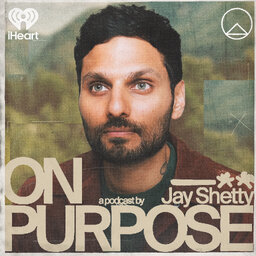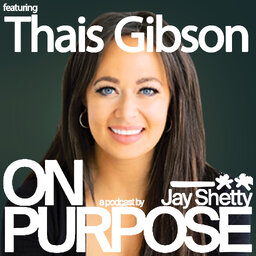7 Questions You Must Ask to Deepen Any Relationship, Friendship or Partnership
Do you want to meditate daily with me? Go to go.calm.com/onpurpose to get 40% off a Calm Premium Membership. Experience the Daily Jay. Only on Calm
Being in a relationship is a work in progress. Fully committing to that relationship is hard work. There are no shortcuts, no hacks. There is no one pattern that works for everyone. It’s a handful, and both must be fully invested to make it work.
In this episode of On Purpose, Jay Shetty shares relationship questions that will make you think, rethink, and contemplate whether you’re doing enough to nurture your relationship.
Want to be a Jay Shetty Certified Life Coach? Get the Digital Guide and Workbook from Jay Shetty https://jayshettypurpose.com/fb-getting-started-as-a-life-coach-podcast/
Key Takeaways:
- 00:00 Intro
- 02:58 7 questions to ask to help improve relationships
- 05:17 Question #1: What am I doing right that I should do more of?
- 09:17 Question #2: What should I do less of?
- 12:39 Question #3: What do I do that makes you confident?
- 14:23 Question #4: What do I do that makes you anxious?
- 17:47 Question #5: What is your love language?
- 20:40 Question #6: What’s your fight style?
- 22:09 Question #7: Is this relationship going in the direction you want it to go?
Like this show? Please leave us a review here - even one sentence helps! Post a screenshot of you listening on Instagram & tag us so we can thank you personally!
In 1 playlist(s)
On Purpose with Jay Shetty
My name is Jay Shetty, and my purpose is to make wisdom go viral. I’m fortunate to have fascinating …Social links
Follow podcast
Recent clips

Stop Trying to “Win” An Argument With Your Partner! (THIS Shift Will Turn Conflict into Communication)
38:35

Relationship Expert Thais Gibson: Do You Keep Attracting The Same Emotionally Unavailable Partner? (Use THIS Attachment Reset To Break The Cycle And Choose Better Partners)
1:44:33

Michael Pollan: The Hidden Cost Of Constant Distraction (Use THIS Practice To Reclaim Your Attention, Clarity, And Inner Freedom)
1:20:39
 On Purpose with Jay Shetty
On Purpose with Jay Shetty